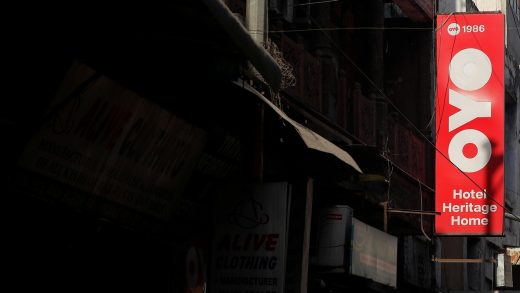:format(webp)/https://www.thestar.com/content/dam/thestar/entertainment/stage/review/2023/03/10/fairview-at-canadian-stage-asks-white-audiences-to-consider-an-alternate-point-of-view/ordena_stephens_thompson_peter_n_bailey_sophia_walker_chelsea_r.jpg)
Fairview
Written by Jackie Sibblies Drury. Directed by Tawiah M’Carthy. At the Berkeley Street Theatre, 26 Berkeley St., through March 25. canadianstage.com or 416-368-3110
“Lights up on a Negro,” open the stage directions of Jackie Sibblies Drury’s Pulitzer-winning play “Fairview,” now having its scorching Canadian premiere, a co-production between Canadian Stage and Obsidian Theatre.
The woman in question is Beverly (Ordena Stephens-Thompson), a mother, wife and daughter preparing for her own mother’s birthday dinner. From the outset, something seems off: the boom box doesn’t seem to work and Beverly is positively vibrating with nervous energy.
Soon we meet her husband, Dayton (Peter N. Bailey), the easygoing patriarch of the family and de facto helper for tonight’s dinner. Sometimes he disappears into the kitchen for minutes at a time and, logically, he can’t be that far away, but he can never seem to hear Beverly when she calls for him.
Not to fear, though: soon Beverly’s sister Jasmine (Sophia Walker) arrives, trying (and failing) to remove dairy from her diet. She’s quick to tease Beverly for her nervousness, but the sisters are close and more than once they break into free-spirited, languid dance (in lovely choreography by assistant director Pulga Muchochoma).
Eventually Beverly and Dayton’s daughter Keisha (Chelsea Russell) arrives and right away it’s clear she has a different vantage point from her family. Like any teenager, she disagrees with her mother about certain things — whether or not she should take a gap year after high school, for instance. All things considered, though, she’s a well-adjusted kid with an enormous soft spot for her family.
But Keisha can sense there’s something strange in the air. She’s not like everyone else and she knows it; she just doesn’t know exactly how. She can’t seem to find the words.
Together the family prepares for dinner, laughing, joking and fretting, in Beverly’s case. The Frasier house is clean, stylish and modern, with little to indicate where it might be geographically. Grandma’s a persnickety matriarch, we hear, and Beverly really does seem to be enormously anxious about the dinner going well but, all in all, this is a normal suburban family with little in the way of conflict.
And then the play begins.
“Fairview” is not the kitchen sink drama the above synopsis evokes and it’s best enjoyed without spoilers. This party-planning spans maybe a fourth of the total play, although we see the basic motions of this evening with the Frasier family — the dinner, the dancing, the banter — twice.
But the second run-through of the preparations is a far less charming affair. Gone are the in-jokes of the Frasier family, their songs and their silliness. In their place is uncouth, uncomfortable commentary from an ignorant and even vicious outside audience, whom we can just barely glimpse through the curtains of the Frasier home.
And the play’s still not over. But describing what happens next ruins the point of it. In short, light audience participation is involved as well as fake food, lots of it.
“Fairview” turned heads and sparked potent discourse when it premiered in New York in 2018. Thematically, there are clear resonances with Jeremy O. Harris’ “Slave Play” and Ntozake Shange’s “for colored girls who have considered suicide/when the rainbow is enuf.” This is a play unafraid to address racism from white people’s point of view — the title all but gives that away — and the techniques “Fairview” employs to make its points clear are startling, destabilizing and fiercely unique.
On the page, it’s a great play. Drury’s Pulitzer Prize win is richly deserved.
But translated to the Berkeley Stage, there seem to be moments where something has gone amiss.
Director Tawiah M’Carthy has mastered the bumbling comedy of that opening scene, the suburban shtick of the Frasier abode. However, when Drury’s play gives way to something darker and less naturalistic, the confidence of the first act seems to lose its footing.
Logan Cracknell’s lighting plays a key role in “Fairview” — it dictates who we can and can’t see during a sequence Drury suggests we only hear — and the choice to just barely illuminate the play’s secondary cast seems to muddy the otherwise crisp scenography.
Jawon Kang’s set is attractive and mysterious, outfitted with family photo-less frames that allude to “Fairview’s” gut punch of a second half. Rachel Forbes’ costumes are striking and horrifying, and well tailored, and difficult to stomach — truly, it depends on which half of the show you’re talking about.
None of the surprise nor scruple of “Fairview” would be possible without a richly capable cast, led by Stephens-Thompson’s Beverly and Russell’s Keisha.
Russell in particular carries much of the play’s intrigue on her shoulders, and she does so with conviction and grace. Bailey as Dayton and Walker as Jasmine beautifully complete the Frasier family with nuance and heart. Without giving away their roles, Sascha Cole, Colin A. Doyle, Jennifer Dzialoszynski and Jeff Lillico ably complete the tasks they’ve been saddled with — and they serve as valiant lightning rods for some of the play’s most difficult moments of vitriol.
“Fairview” will make people angry. There’s no question about that. Its final 20 minutes or so are going to ruffle feathers and almost certainly provoke some walkouts from the theatre.
Drury’s play anticipates resistance and M’Carthy’s production (and Russell’s performance in particular) mostly succeed in executing the playwright’s demanding ask. Yes, you should see it, but yes, you should read the play after — after all, taking two different points of view about the same story is the whole point.
JOIN THE CONVERSATION
does not endorse these opinions.



